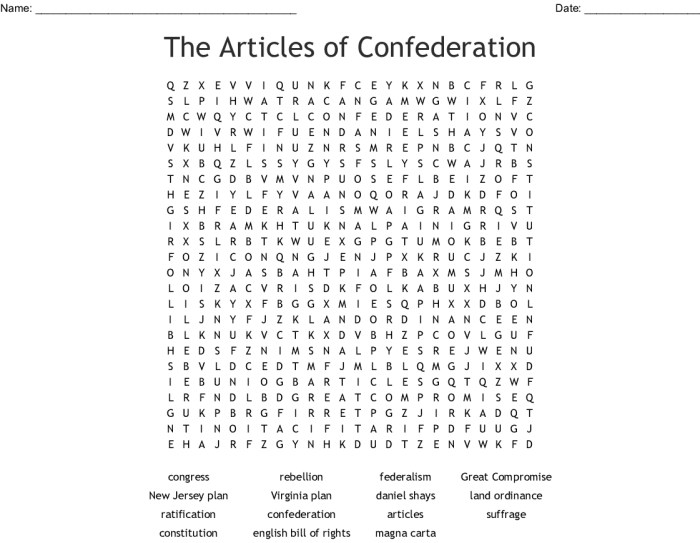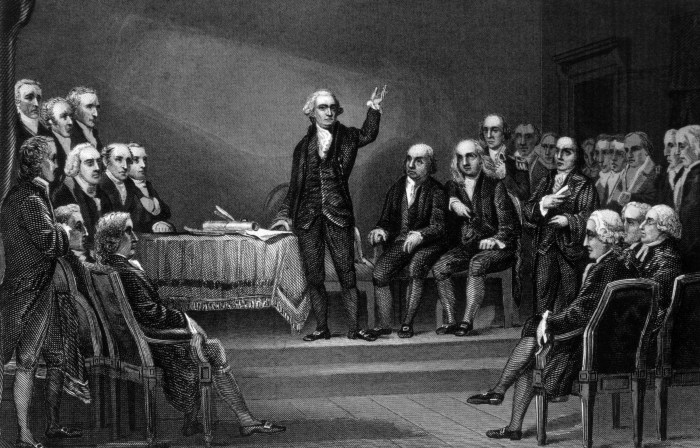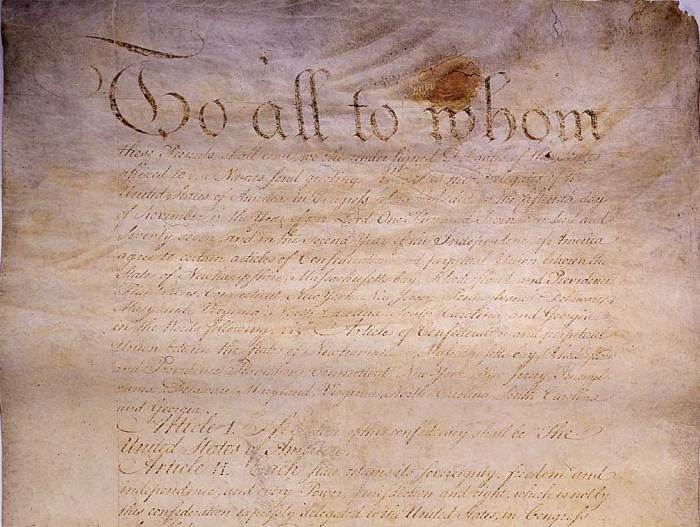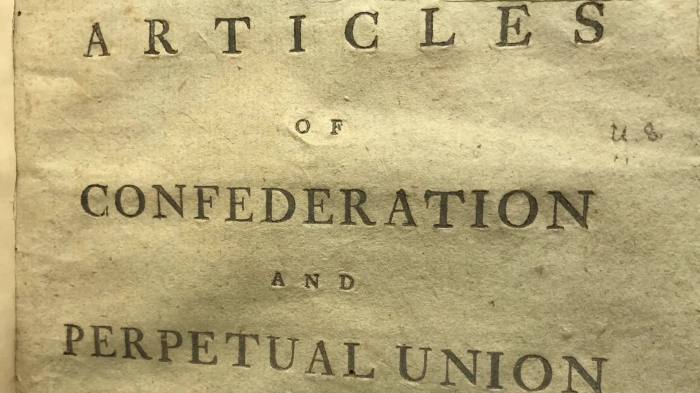Embark on an enlightening adventure with the Articles of Confederation Word Search, a captivating puzzle that unravels the historical significance and key provisions of the document that laid the groundwork for the United States.
Dive into the historical context, challenges, and impact of the Articles of Confederation, while exploring its structure, powers, and the educational value of this engaging learning tool.
Historical Significance of the Articles of Confederation

The Articles of Confederation were the first constitution of the United States of America. They were adopted by the Continental Congress on November 15, 1777, and ratified by all 13 states by March 1, 1781. The Articles of Confederation established a loose confederation of states, with a weak central government.
The Articles of Confederation were a product of the American Revolution. The colonies had declared their independence from Great Britain in 1776, and the Articles of Confederation were an attempt to create a new government that would be more responsive to the needs of the states.
The Articles of Confederation had a number of weaknesses. The central government was too weak to effectively regulate commerce, raise revenue, or maintain a military. The states were also jealous of their own sovereignty, and they often refused to cooperate with the central government.
The Articles of Confederation were eventually replaced by the Constitution of the United States in 1789. The Constitution created a stronger central government, and it has served as the foundation of the American government ever since.
Key Provisions of the Articles of Confederation, Articles of confederation word search
The Articles of Confederation established a loose confederation of states, with a weak central government. The central government was responsible for foreign affairs, war, and the postal service. The states were responsible for all other matters.
The Articles of Confederation created a unicameral legislature called the Continental Congress. The Continental Congress had the power to declare war, make treaties, and appoint ambassadors. However, it did not have the power to tax or regulate commerce.
The Articles of Confederation also created a weak executive branch. The executive branch was headed by a President of the United States. However, the President did not have the power to veto laws or appoint cabinet members.
The Articles of Confederation were a product of the American Revolution. The colonies had declared their independence from Great Britain in 1776, and the Articles of Confederation were an attempt to create a new government that would be more responsive to the needs of the states.
The Articles of Confederation had a number of weaknesses. The central government was too weak to effectively regulate commerce, raise revenue, or maintain a military. The states were also jealous of their own sovereignty, and they often refused to cooperate with the central government.
The Articles of Confederation were eventually replaced by the Constitution of the United States in 1789. The Constitution created a stronger central government, and it has served as the foundation of the American government ever since.
Question & Answer Hub: Articles Of Confederation Word Search
What is the Articles of Confederation?
The Articles of Confederation was the first constitution of the United States, adopted in 1781 and serving as the framework for the government until the ratification of the Constitution in 1789.
What is the significance of the Articles of Confederation?
The Articles of Confederation established a loose alliance of states, laying the foundation for a more unified nation while also highlighting the need for a stronger central government.
How does the Articles of Confederation Word Search help in learning?
The word search puzzle engages students, reinforces key concepts, and promotes active recall of information related to the Articles of Confederation.


